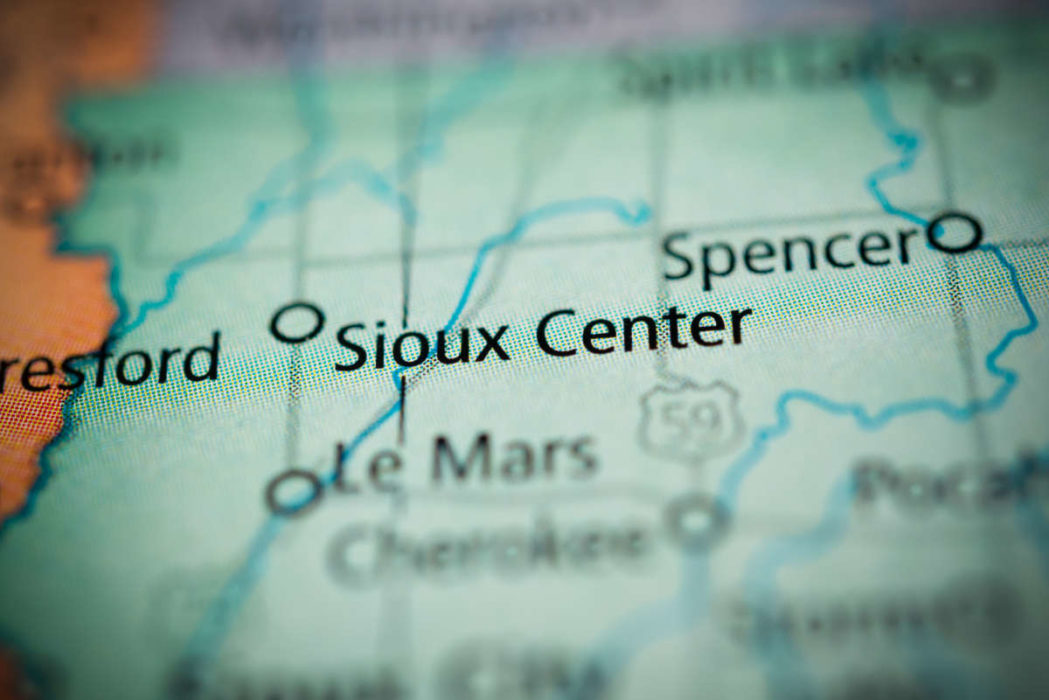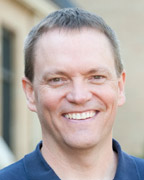Bringing Healing the Wounded Heart to Iowa: An Interview with Deon Wynia

The Allender Center is heading to Sioux Center, Iowa, September 28-29, for the Healing the Wounded Heart conference. This is one of our favorite things: traveling to cities around the country to partner with you and support the work that God is already doing in your community.
To learn more about the heart behind bringing this conference to Sioux Center, we spoke with Deon Wynia, who has been practicing therapy for 25 years and is part of Bethesda Christian Counseling in Iowa. Deon shares how, as the community of Sioux Center grapples with the individual and collective harm that occurs when people in leadership positions perpetrate abuse, he was inspired to partner with Dordt College and Sioux Center Christian School to host this conference, and to foster space for individuals, families, and communities to tell their stories in new ways.
How did you first encounter The Allender Center?
 Many years ago—close to the beginning of my practice, if not already in graduate school—I read The Wounded Heart. Over the years, I’ve had the opportunity to work with many sexual abuse victims who trusted me with their stories, so I have used Dan’s books a lot. In addition to The Wounded Heart, I’ve used Bold Love, The Healing Path, To Be Told—all quite a bit. With people in leadership positions, I have often gone through Leading with a Limp. Years ago I went to a presentation Dan put on soon after To Be Told came out. After the presentation I brought the book to Dan to sign for a client who had gone through severe sexual abuse as a child. Dan wrote a little paragraph for her in the front of the book that just blew her away when I gave it to her. She did a lot of great work and went on to live much more the life that she longed for.
Many years ago—close to the beginning of my practice, if not already in graduate school—I read The Wounded Heart. Over the years, I’ve had the opportunity to work with many sexual abuse victims who trusted me with their stories, so I have used Dan’s books a lot. In addition to The Wounded Heart, I’ve used Bold Love, The Healing Path, To Be Told—all quite a bit. With people in leadership positions, I have often gone through Leading with a Limp. Years ago I went to a presentation Dan put on soon after To Be Told came out. After the presentation I brought the book to Dan to sign for a client who had gone through severe sexual abuse as a child. Dan wrote a little paragraph for her in the front of the book that just blew her away when I gave it to her. She did a lot of great work and went on to live much more the life that she longed for.
All these years later, Healing the Wounded Heart is coming to Sioux Center at a time when stories of trauma and abuse, which might usually be ignored or under the radar, seem to be pretty close to the surface. Why does it feel important to continue and deepen the conversation in this way, at this time?
When abuse affects a larger part of the community it is hard to ignore. And we are not always sure how to address it or think about it or heal from it. It just isn’t something that has really been wrestled with in an open way. And there are so many different responses, from ‘Forgive and forget, we need to move on, don’t make such a big deal out of it, forget what is behind, it happens to a lot of people’ to ‘I don’t know that I could ever see the person who did this and not take them out.’ There’s not a lot of history in our area of dealing effectively with this issue. So our theology is much lacking in that area. People are trying to figure out, what does it look like to move toward healing, restoration, justice, or forgiveness? A lot of times people see restoration and forgiveness as the same thing, that there’s really no distinction between them. That doesn’t help a whole lot, to think that if somebody does something to you and you forgive them you just have to be okay with them.
Which seems like a good way to pretty quickly shut yourself down and silence any unrest you’re feeling.
And that’s the discomfort—so many experience that discomfort. Sometimes victims think, ‘Would everybody just quit talking about it?’, or ‘I don’t want to think about it anymore, I don’t want to have to deal with this anymore, just let me live my life and leave me alone.’ It can be hard to sort out the experiences, sensations, thoughts, and emotions associated with the abuse. There are often confusing feelings of at one level still liking the perpetrator and at another level feeling repulsed. This is very understandable, especially in the confusion over what to do with what has happened to them.
Of course that’s an understandable impulse, even if it affects our capacity for healing. How do you respond to that?
I try to help them process their experiences and see how their responses are understandable and often expected in a situation like that. That this event doesn’t define them. At the same time, this is part of their story now, and the more that they understand and deal with how this affects their story, how this affects their life, the more they’re going to be able to live well. But if they bury it, or they run from it, then what’s going to happen is events in life are going to trigger difficult emotions and unwanted behaviors, and then they’ll feel like they are right in the middle of it again, and they’ll again be trying to figure out ways to make it go away, to stamp it down, to keep it under wraps—until it doesn’t want to be kept under wraps anymore.
It sounds like you’re doing good work in a hard time, which makes us so grateful to be able to partner with you and support you in this way.
Over the years I have witnessed how incredibly important it is for people to look at abuse, or look at difficult life events in general, through the eyes of their faith. How do you live out faith when you’re just trying to figure out what an experience like this even means? Satan comes to steal, kill, and destroy, and he often uses the trauma of abuse to whisper lies to us. These lies can take life away from us for years and years, stealing our joy. Then Jesus says he comes to give us life, full life. How does that work? We all need to wrestle with what that looks like, so that we can live life with that fullness—this is an opportunity to do that. For a lot of us, this is a new way to look at the hard parts of life.
This is a new way to look at the hard parts of life.
What’s the journey been like in bringing this event to fruition?
First we hosted a simulcast for To Be Told, and we had some really good feedback. The comments at the end were, ‘I want to hear more,’ ‘I want to process this,’ ‘I’ve never thought about it in these terms,’ ‘This is new material.’ It kept going through my mind. Dr. Allender presented a conference in Nebraska this spring that I attended, and the thought of being able to facilitate bringing this message of life to our area was very compelling. I contacted The Allender Center to inquire about the possibility, and they let me know what it would take. Not long after that I was invited to a meeting of some other therapists and people involved in this situation to brainstorm what we could do. I mentioned the idea to them, and someone said that if we wanted to do it, they thought we could find a way to make it happen. Things just started rolling from there. The main thing that had to happen for this to come to fruition was to partner with Sioux Center Christian School and Dordt College—they are both co-sponsors of the event and have been great to work with.
What are your hopes for people who attend?
My hope is that people have the opportunity to encounter a hope-filled, truth-filled, meaningful way to engage with the traumatic events that have happened in their story. My hope is that, as they think about those events in the context of their faith and the context of their story, it really makes their faith come alive, that it gives them the opportunity to heal, that it gives them the confidence to know that they don’t have to be afraid of the memories, and that they can live with purpose, meaning, and passion. I love to see people who live their story well. That’s my hope. That would be a great thing.
Anything you’d like to say to someone who is considering coming to the conference?
I would say that you never know when God takes the ugly things in life and makes from them very beautiful things. In fact He is in the business of doing this, the business of redemption. I’d ask them to have the courage to be willing to look at what He might have for you in this moment.
